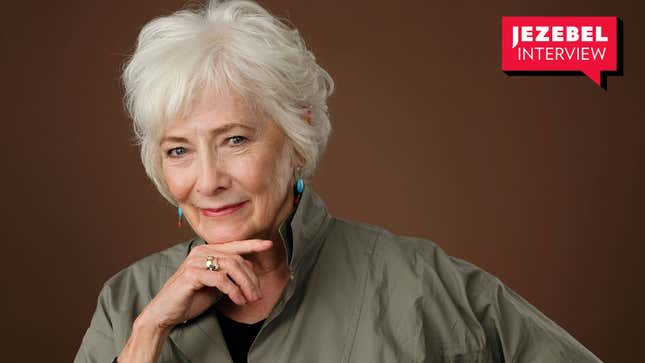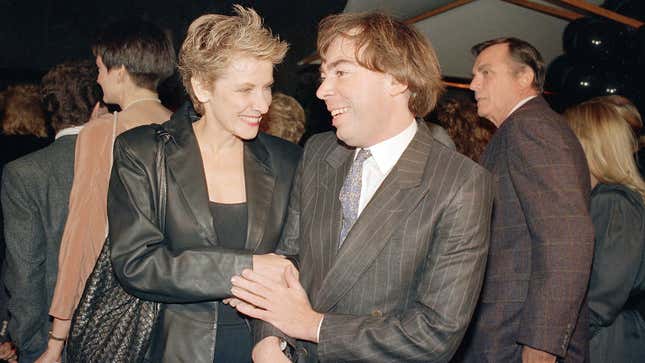
Image: AP
“The job assignment was: Stop the show,” says Betty Buckley. “During previews, I was not stopping the show.” This was the first of several stories Buckley told me about her inaugural role as Grizabella in the original 1982 Broadway production of Cats. Spoken like a true theatre legend! Since her Broadway debut in 1969, Buckley has been an unstoppable force not just on the stage, but also on the screen (recent credits include Split and The Leftovers). She’s also recorded 18 albums.
She agreed to talk to me about her Tony Award-winning turn in Cats for the post in which I polled past cast members on their experiences in the show. I asked for about 10 minutes of her time, and true to her reputation for indefatigability, she generously gave me 30. The simple question of asking her to describe her time in the show elicited a nearly 10-minute monologue about how she found it within herself to nail Grizabella after failing to do so for almost the entirety of the show’s previews period. It was a vivid, impassioned, earnest conversation, so much so that it deserves its own post. So here it is below, a transcript of our chat edited for length and clarity.
JEZEBEL: How would you describe your time in Cats?
BETTY BUCKLEY: It really was one of the greatest experiences of my life, with the honor of getting to work with [director] Trevor Nunn, [choreographer] Gillian Lynne, and [composer] Andrew [Lloyd Webber]. The job assignment was: Stop the show. I had stopped shows, but I didn’t know there was any particular formula to make that happen. During previews, I was not stopping the show. I was terrified. I knew that’s what their expectation was. Elaine Page, who is a wonderful singer/actor, in the original London company, had stopped the show [as Grizabella]. And so, I went through a whole process with my voice teacher, Paul Gavert, where I kind of came to a realization that I was trying too hard to please the powers that be. I was doing everything Trevor told me to do. I was choreographed down to my pinky by Gillian Lynne. I was trying so hard to please Andrew. The one person I had forgotten to consult was the being inside me that does this work for me.
Through my teacher’s guidance, I kind of rediscovered that inner-self. Trevor had written the lyrics for “Memory.” I knew that Trevor had created the role of Grizabella based on a four-line fragment of poetry by T. S. Eliot. That’s all there was and the rest was his contrivance. Grizabella, he told me, was the glamour cat. She had been the Marilyn Monroe of cats, you know, this glamorous, beautiful creature, who through living life with too much excess—drugs, alcohol, sex—had become a very desiccated being who had lost her prowess and her beauty faded. She was approaching death and she wanted to be just one of the community and they had made her the outcast, the pariah.
It really was one of the greatest experiences of my life.
We were just starting as a culture to be aware of the problem of homelessness. I put two and two together in my intuitive guidance from my teacher, and I started following homeless women, and I noticed that everyone’s eyes were the same. We all had this desire to love and be loved and connect regardless of our circumstances. These homeless people we had turned away, as a community, from their humanity. I started observing them on the streets and learned how to keep a discreet distance. A couple of really beautiful, glamorous homeless women crossed my path. One, in front of my apartment building one morning when I was on my way to rehearsal. We were in previews at this point. She moved with such grace and such nobility that she connected with me for a moment, looking in my eyes, and I just felt her saying, “I see you and I would love to spend some time talking to you, but I have things to do and so do you, so maybe another time.” And she just kind of floated off down the street.
The next night as I was coming out of the Winter Garden stage door after the show, still not stopping the show, this other woman that looked like her, these moonlit colors and this wild hair and this very pasty makeup with smeared lipstick, I had the same kind of encounter with. It was very powerful and I thought, “Okay, I’ve got it, universe. I know what you want me to do.” So then I took the inspiration of all that I had observed and witnessed on the streets and put it through the direction and choreography I had been given in the show. It took me about two weeks. I thought they were going to fire me.
Suddenly, I walked out four performances before the opening night and stopped the show. I was like, “Oh my God, I’m so grateful.” I had discovered that the heart of compassion was what Grizabella was all about. She drew the whole evening together in terms of the story. It took some doing to sort all that out, but it was an incredible experience for me as a growing, young person who was committed to the art of storytelling in the musical theater and my studies as an actress, and I suddenly had this breakthrough understanding of what my mission was in terms of my work and how this wonderful character had come to me to help me break through the potential I had.
-

-

-

-

-

-

-

-

-

-

-

-

-

-

-

-

-

-

-

-

-

-

-

-

-

-

-

-

-

-

-

-

-

-

-

-

-

-

-

-









































